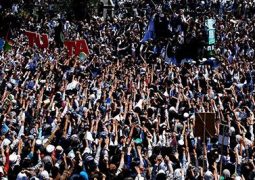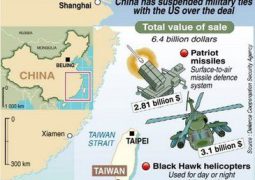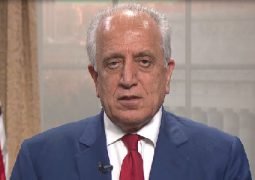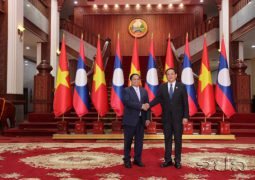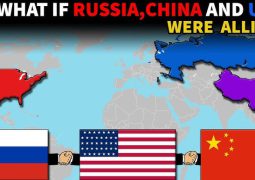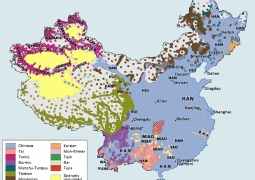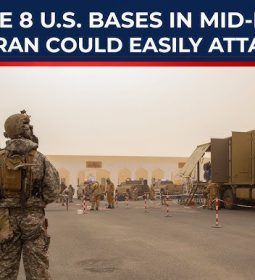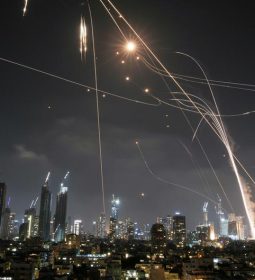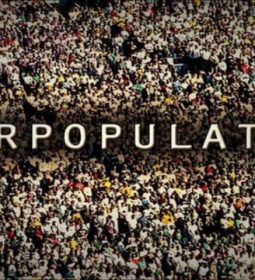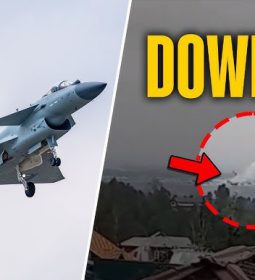Trump resumes military training program in Pakistan. Islamabad will “abstain” from US-Iranian conflict escalation
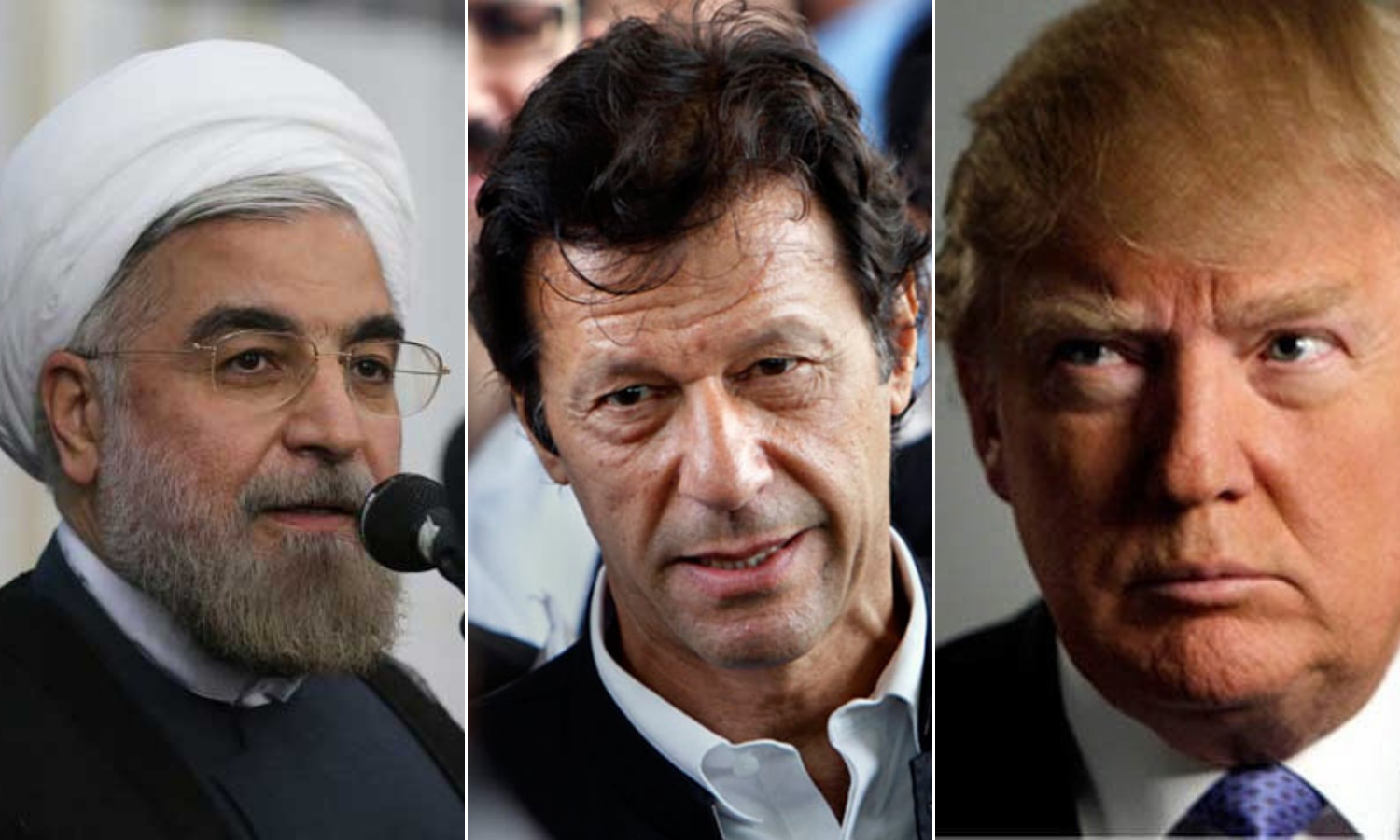
The move to restart a military training program signals a thawing of relations between Washington and Islamabad. US security assistance to Pakistan, however, continues to be suspended.
US President Donald Trump has authorized the reinstatement of a military training and educational program in Pakistan more than a year after suspending it, according to the US Bureau of South and Central Asian Affairs late Friday evening.
In January 2018, the Trump administration cancelled all security assistance to Pakistan after the US president accused Pakistan of not doing enough to counter the actions of terrorist groups.
In August that same year, the US also suspended the military training program.
The US International Military Education and Training (IMET) program’s aim is to build military-to-military cooperation and advance the goals of US national security, US acting Assistant Secretary of State for South and Central Asia Alice Wells said in the tweet.
The suspension of the overall security assistance program, however, remains in effect, Wells added.
The announcement comes in the wake of US Secretary of State Mike Pompeo’s call to Pakistan’s army chief, General Qamar Javed Bajwa, after the killing of top Iranian general Qassem Soleimani. In the call Pakistan encouraged all parties to exercise “maximum restraint, engage constructively to de-escalate the situation, and resolve issues through diplomatic means, in accordance with UN Charter and international law.”
Pakistan will not be party of US-Iranian conflict, PM Qureshi tells senate
The News, Pakistan newspaper, 06/12/2020
Foreign Minister Shah Mehmood Qureshi on Monday briefed the Senate on tensions in the Middle East that arose after the killing of top Iran commander Qasem Soleimani in a US air strike, making it clear that Pakistan will not become party to the regional conflict.
The minister began his speech by recounting how the crisis-like situation in the region unfolded, starting with the killing of an American contractor in a rocket attack in Iraq that led the US to carry out strikes on an Iranian-backed Iraqi militia.
The foreign minister was directed by the Senate chairman to brief the upper house on developments on the foreign policy front last week.
Qureshi told the Senate that according to regional experts, the repercussions of the strike that killed Soleimani could be more severe than the 2011 raid that killed Al Qaeda leader Osama bin Laden and the 2019 killing of militant Islamic State group chief Abu Bakr al-Baghdadi.
He said Iraq had decided to send its foreign minister to the United Nations to record protest because in their view the strike violated international law and UN charter. The Pakistani government presented its stance on the development on January 3.
“I decided to contact the important foreign ministers of the region. Yesterday I talked in detail with the Iranian foreign minister and presented Pakistan’s stance on the incident and gained information from him,” he said, adding that he also spoke with the foreign ministers of the United Arab Emirates, Turkey and Saudi Arabia.
“The situation in the Middle East is very sensitive, fluid and concerning.”
He recalled that the Iranain supreme leader has promised revenge over Soleimani’s killing while Iranian President Hassan Rouhani has termed this strike as “international terrorism”. Iran’s foreign minister, meanwhile, considers this act as dramatically escalating the regional situation.
The Pentagon, on the other hand, acknowledged that the strike was carried out on the direction of US President Donald Trump, Qureshi said. He added that the US State Department had said it was primarily a preemptive action and that Washington had reports that Soleimani was planning to attack US soldiers and diplomats.
“The White House stated that it was a ‘decisive defensive action’. […]These tensions have not arisen overnight but the situation has been intensifying over a period of time,” the foreign minister said, adding that this specific act by the US has aggravated the situation in the region.
He noted that the US claims that their action was “preventive” in nature and was not meant to ignite a war, and now they say they are ready to deescalate the situation.
“But at the same time they (Washington) have warned that if Iran retaliates, our response will be even stronger than before.”
Foreign Minister Qureshi laid before the Senate several points which he said reflected why Pakistan is concerned about the US-Iran tensions:
- The incident will further destabilise the region, especially the situation in Iraq and Syria
- The crisis could have a negative impact on the Afghanistan peace process and Pakistan’s efforts in this regard could be undone
- The situation in Yemen could get out of hand and attacks by Houthis on Saudi Arabia could increase
- Hezbollah, which has in the past conducted rocket attacks, could go ahead and strike Israel
- The situation could lead to high-profile assassinations of US personnel in the region
- Route blockades could be enacted leading to breakage in oil supply, which will have a negative impact on the regional and global economy
- The Iran nuclear deal has come under severe pressure with the latest announcements coming out of Iran suggesting Tehran has virtually backed out of the deal that put restrictions on the country’s Uranium enrichment
- The crisis could lead to terrorism rearing its head again in Pakistan
- The developments have raised the chances of further division of the Organisation of Islamic Cooperation
- The situation has also impacted the Pakistani government’s efforts to unite the forum of OIC on the human rights violations in India-occupied Kashmir
- India may pounce on the chance to destabilise Pakistan and conduct false-flag operations
‘Pakistan’s soil will not be used against any other state’
Qureshi then proceeded to present Islamabad’s foreign policy position on the fraught regional situation. He said Pakistan “does not support any unilateral action and is against the use of force as it never resolves matters”.
“Pakistan backs principles of sovereignty and territorial integrity as enshrined in the UN charter,” he said, adding that Pakistan urges all parties to exercise maximum restraint.
“I even urged Iran to exercise its traditional wisdom and refrain from any escalatory measures in the larger interest of the region,” the minister added.
He said Middle East cannot be pushed into another war. “It will be disastrous and Pakistan will also face the repercussions of such an occurrence,” he cautioned.
“Pakistan’s soil will not be used against any other state,” Qureshi said, adding that Pakistan “will not be party to this regional conflict”.
The foreign minister urged the UN Secretary General to play his role in safeguarding the region and “putting out this fire”.
“We are constantly monitoring and assessing the situation,” Qureshi announced, adding that he has created a task force in the Foreign Office which will keep an eye on this evolving situation on a day-to-day basis and apprise the government and present its recommendations on the issue.
Pakistan had on Sunday reaffirmed its resolve not to become a part of any conflict in the region and renewed its offer for mediating in the Middle East crisis.
The offer was formally conveyed by Foreign Minister Qureshi during a telephonic conversation with his counterparts from Iran, Saudi Arabia, the United Arab Emirates and Turkey.
This was Qureshi’s first contact with the Iranian leadership after the assassination of Maj Gen Soleimani in a US drone strike in Iraq on Friday
- Previous Russia, China veto renewal of UN cross-border aid mechanism in Syria
- Next Turkish soldiers “and other armed groups” gradually being deployed to Libya





